Skunk spray is not poisonous to humans but can cause nausea and irritation. However, dogs can suffer serious health effects like anemia after being sprayed. Skunk spray has properties similar to onion and garlic, which are toxic for dogs. In addition, skunk spray contains a compound known as thioacetates, which can wreak havoc on a dog’s red blood cells.
Skunk spray may smell horrendous, but is it poisonous? For humans, the short answer is no. For dogs, it’s a different story.
Let’s examine the characteristics of skunk spray and find out how it affects humans and dogs.
Table of Contents
How many times can a skunk spray?
Skunks can spray their liquid six consecutive times, ejecting a volume of up to 5 mL at a time. Once its “juice” is fully depleted, it will take the creature about 10 days to refill more of its signature, foul-smelling liquid.
The secretion process involves the skunk lifting its tail and spraying a stream of offensive liquid from its anal glands. Spraying is the skunk’s primary defense against predators. Once it’s all out, it’ll have a much more difficult time warding off would-be attackers. This means skunks don’t always put themselves in situations where they’ll be in danger.
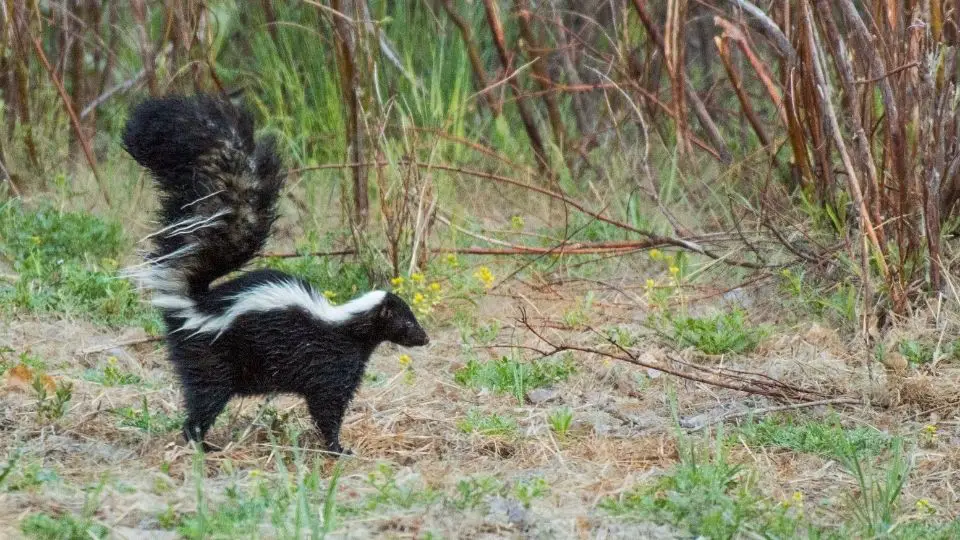
How far can a skunk spray?
Skunk spray can accurately hit its target from a distance of up to 15 feet away. The skunk discharges its yellow oily substance from its perianal glands, located just inside the anus. When it feels threatened, the skunk raises its tail and directs the spray toward its attacker.
Can a baby skunk spray?
Yes, baby skunks can spray mild amounts of their musk at just a few weeks old. They develop the ability to produce their offensive odor right at birth.
They’re not very accurate during their first few days, though. Moreover, they sometimes accidentally scare away their mothers by expelling their foul odor at the wrong time! However, once these babies reach about three to four months, they can spray with more precision and power.
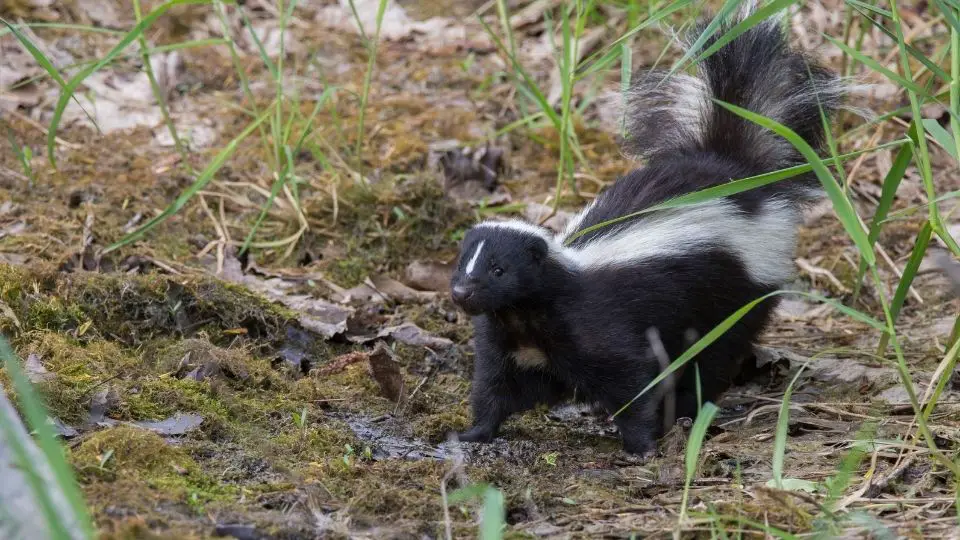
Do skunks give a warning before spraying?
Yes. Contrary to popular belief, a skunk’s first instinct isn’t to raise its tail and go at it. They tend to exhibit other warning signs before turning to their last resort.
These are some behavioral warning signs that a skunk does NOT want you around:
- Hissing
- Shrieking
- Stomping their feet
- Growling
At the slight off-chance that you or some other predator don’t take the hint, that’s when the skunk will resort to its final defense mechanism—spraying its victims.
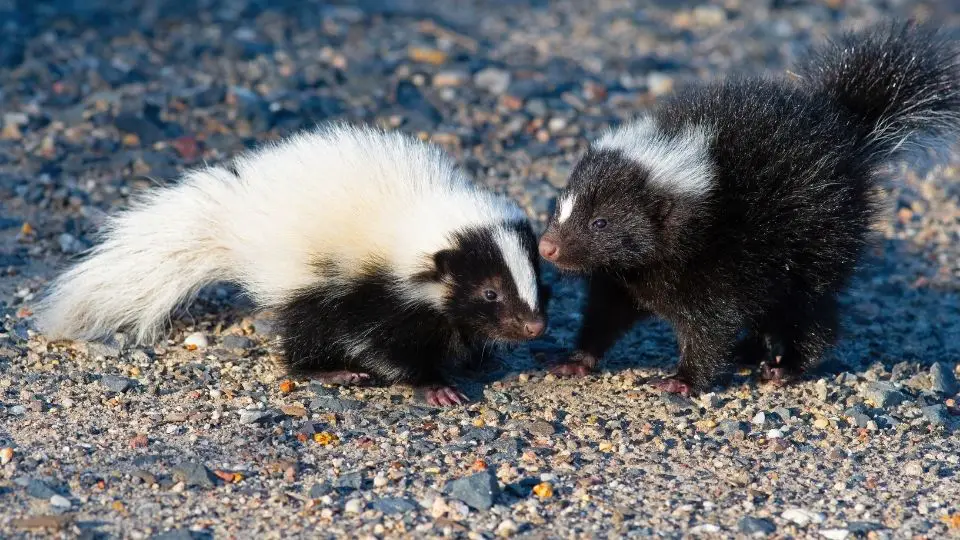
Do skunks come back after they spray?
If the skunk’s location is full of grubs, critters, and rich food choices, skunks may return to the same place. This is especially true if they have already established a secluded den protected from the elements.
But if it’s an area that isn’t good for food or shelter, the skunk will likely move on in search of another den. If the particular encounter made the skunk feel unsafe, it’d probably leave the area where it sprayed for good.
Is skunk spray harmful to humans?
No. Skunk spray can be irritating and hard to get rid of, lasting in one spot for weeks if left uncleaned. However, it won’t do any long-term damage to human health.
If you accidentally get some in your eyes, it’ll sting and cause tearing. If you get some on your eye, you may experience temporary blindness. In rare cases, inhaling skunk odor may worsen symptoms of asthma. However, these symptoms fade away over time and won’t cause long-term damage.
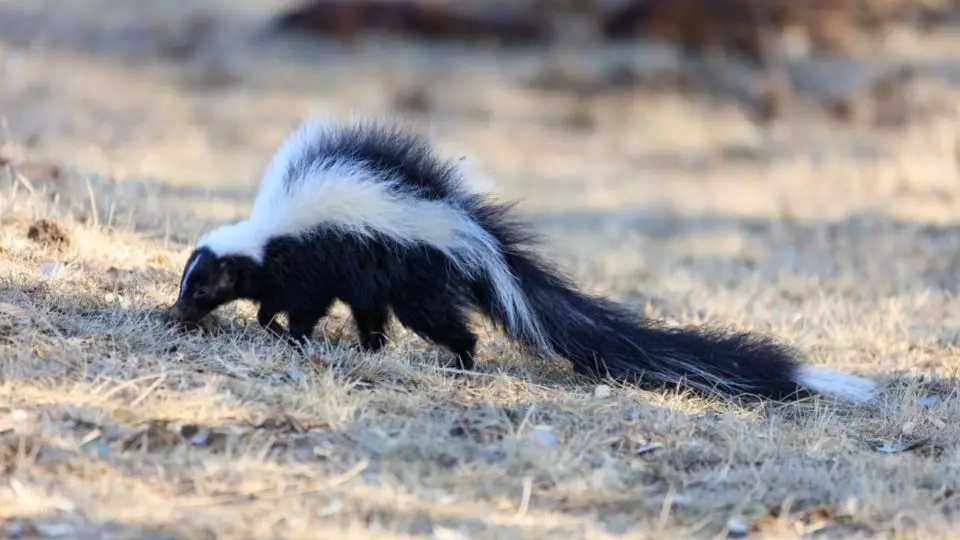
Is skunk spray harmful to pets?
For some small dogs, cats, and pets, skunk spray entering their system can be fatal. It can cause digestive problems like nausea and diarrhea in the same vein garlic, and onion does. But more often than not, skunks avoid contact with potential predators, dogs included.
Another concern is when the spray enters your pets’ eyes. Skunk spray is a lachrymator, which means it has the same effect as tear gas upon exposure. This can cause temporary blindness to dogs when hit directly to the eye.
Unfortunately, dogs aren’t always as aware as us when it comes to understanding the ways of the skunk. This makes them more prone to sticking their head straight into a skunk’s den, only to meet a nasty surprise by the end of it.
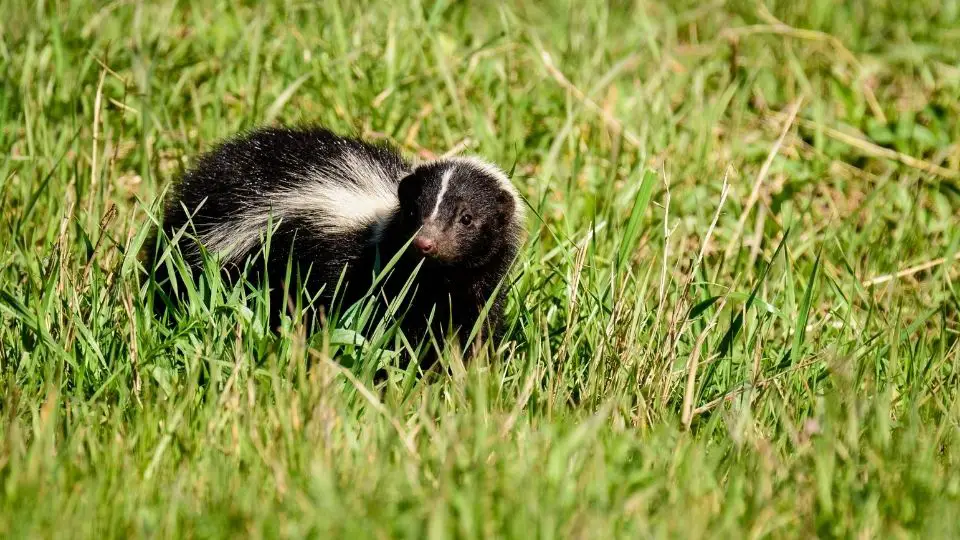
What happens if a skunk sprays you?
When you get sprayed by a skunk, you’ll first notice an intense odor that smells like sulfur or rotten eggs.
This is because the spray contains a pungent chemical known as mercaptan, also found in sewage water and strong cheeses.
Besides that, skunk spray can give rise to the following symptoms:
- Redness
- Flushing
- Eye irritation
- Tearing
- Involuntary mucus production
- Nausea
- Diarrhea
Can breathing in skunk smell make you sick?
Inhaling skunk spray can give rise to many unpleasant symptoms, like headaches, watery eyes, and a runny nose. Some people with asthma may also experience wheezing and difficulty breathing.
Most of the time, the skunk spray is just a highly unpleasant odor. In rare cases, it might need medical attention. Contact a doctor if you’re experiencing any persistent symptoms.
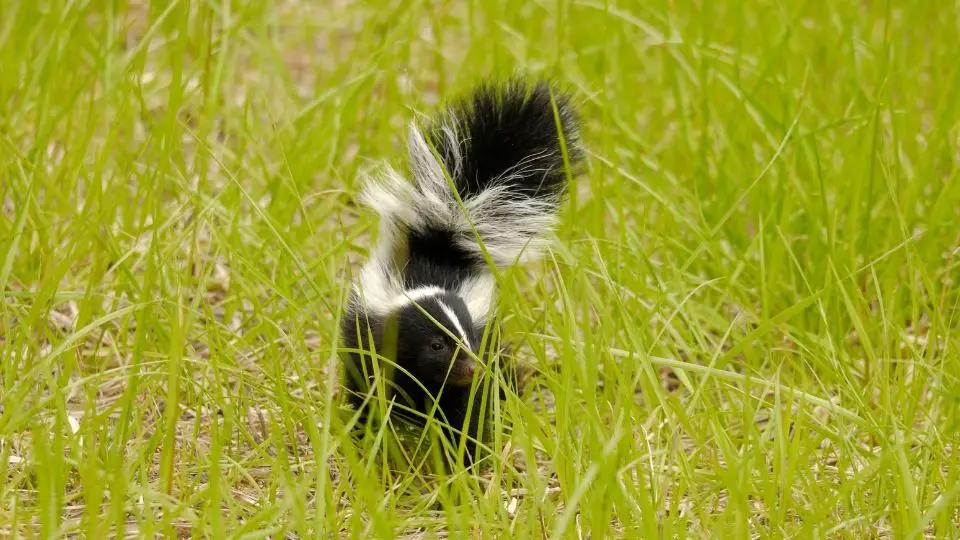
How long will skunk smell last?
Skunk spray can stick to a person for two to three weeks. If a skunk has sprayed indoors, it can linger for around the same time.
With proper ventilation, cleaning techniques, and immediate action, the skunk smell should be gone entirely within a week.
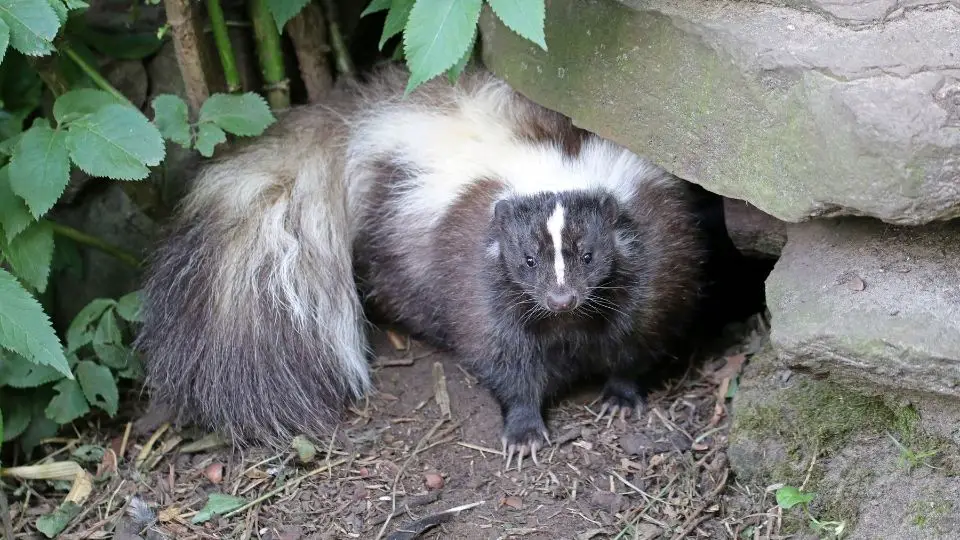
4 effective tips to get rid of skunk spray
Getting rid of skunk spray is no easy feat. But with these tips, you can at least mitigate that awful skunk stench more quickly and effectively.
For humans
- If you’ve been sprayed, wash immediately!
- Use shampoo that’s suited for oily hair.
- Use deodorant soap to clean yourself. This will be more effective against the skunk’s oily liquid.
Alternatively, rinse yourself with 2 to 4 cups of a baking soda and hot water mixture.
For pets
- If your pet has been sprayed, take them outside and rinse them off with a hose.
- Use a mixture of a quarter baking soda, a quarter 3% hydrogen peroxide, and a teaspoon of baby shampoo to lather.
- Lather that mixture on your pet and let it sit for 5 minutes.
- After that, rinse them with their regular shampoo.
For fabric
- Prepare a mixture of regular laundry detergent and one-half cup of baking soda.
- Put the laundry in the washing machine with hot water for about 30 minutes.
- Air dry once you are done.
For the house
- Ventilate your entire house. This will help to dissipate the skunk smell more quickly.
- Open your window and let sunlight enter.
- Place bowls of vinegar in affected rooms. This will oxidize the house.
- Let the vinegar bowls sit for 24-48 hours or until the smell disappears.
- Once it’s gone, change the filters of your A/C unit and fans to avoid re-circulating the skunk smell.
For hard furniture
- For floors and furniture, mix a solution of 10% bleach and 90% water. White vinegar works too.
- Wipe the solution on the affected areas with a clean and soft cloth. Be careful not to discolor or damage the furniture.
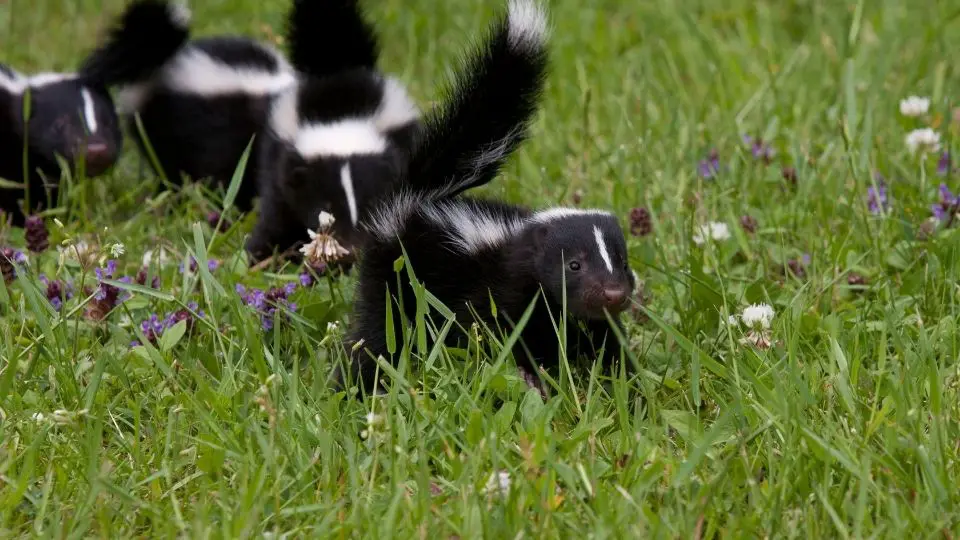
Skunks can be a true household menace. But with the right information and tips, you can be better prepared the next time a skunk decides to take a stroll near your property.

